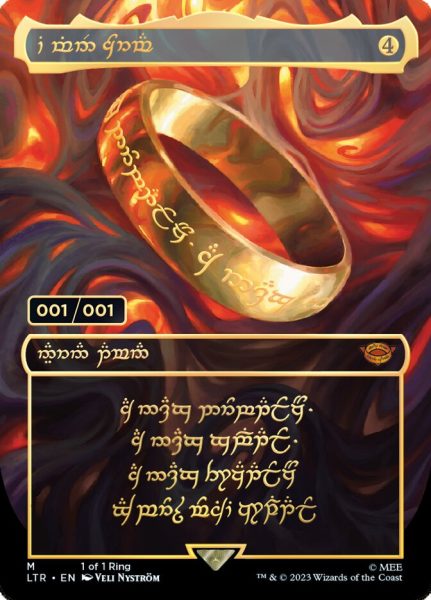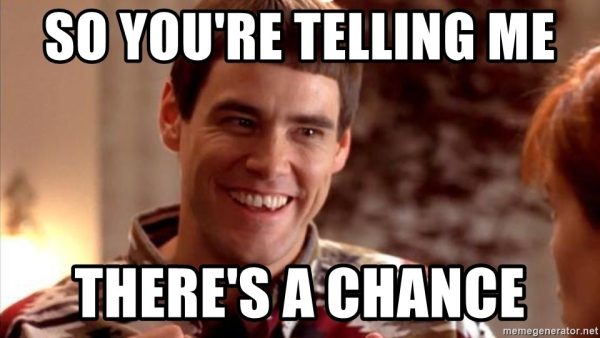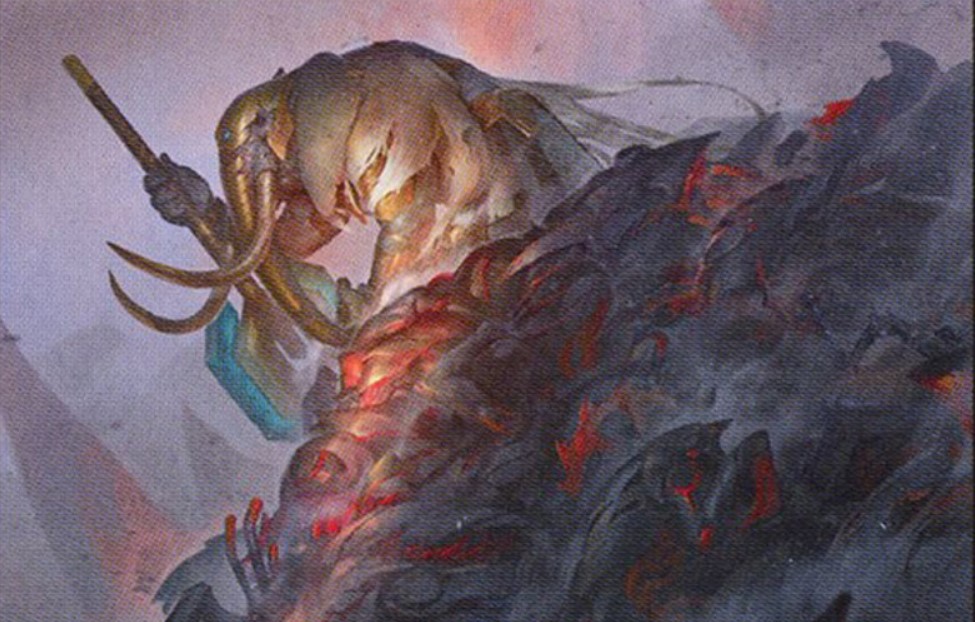Are you a Quiet Speculation member?
If not, now is a perfect time to join up! Our powerful tools, breaking-news analysis, and exclusive Discord channel will make sure you stay up to date and ahead of the curve.
I’m not much of a gambler.
Ok, that’s not entirely true. Technically, when sports betting became legal in Ohio, I promptly signed up for a half-dozen apps to redeem promotional freebies and bonus bets. I only did this because it yielded (and still occasionally yields) free money! Perhaps the more accurate statement would be, “I love gambling, so long as I’m using other people’s money to do it.”
The opportunity to win something of value while putting little-to-no resources of my own at risk sounds like the optimal risk-reward proposition.
Magic: the Gambling?
Magic has always had an unofficial gambling component to it. I vividly remember cracking open a booster pack of Stronghold back when I was around 14 years old and finding a beautiful Mox Diamond inside.
I had paid $3 for that booster pack, and immediately upon opening the card another kid in the hobby shop proffered $20 for the rare artifact. I accepted, thereby increasing my net worth by fivefold in all of thirty seconds. Do you know where else you can do that kind of thing? A casino.
There’s a very important distinction when it comes to Magic, however, that I need to emphasize. Rather than re-hash it, I’m going to quote an important synopsis I found on cardboardkeeper.com:
“Magic The Gathering [SIC] is not gambling. Wizards of the Coast doesn’t assign a monetary value to individual cards and sells what is advertised on card packs. Magic doesn’t advertise potential monetary gain decided mainly by chance, but some governments still choose to apply gambling laws to MTG.”
The rest of the article is a fascinating read, and I recommend folks check it out. I intend not to rehash all points made in that article—I’m not a lawyer and am far from qualified to make commentary in this space. I merely present the information as background.
I can buy a booster pack for an amount of money, open the booster pack, and sell the contents for a different amount of money. Sometimes it’s more, but most of the time it’s less, as dictated by the secondary market.
Increasing Values and Rarities
For many years, the range of card values one could open from a booster pack of a new set was fairly fixed. I remember when I first started playing Magic in 1997, cards that were still in print would almost never exceed about $25 in value. In addition, finding card values was nontrivial—I remember using the same InQuest Magazine for months because it was the only resource I had. My stepbrother and I used to call the local hobby shop and inquire about card values just to facilitate a trade.
If you didn’t know what your cards were worth, you simply guessed based on how attached you were to them. Most of the time that meant commons were $0.25, uncommons $0.50 to $1, and rares $1 to $3. Basically, the math worked out to be worth about the price of a booster pack—you got what you paid for.
That changed with the advent of the mythic rare. Suddenly, these ultra-rare cards could be worth $30-$50 if they were powerful enough in Standard. Jace, the Mind Sculptor broke that mold even further, notching around $100 of value for a single, in-print card! I’ll always remember the time Ben Bleiweiss, general manager of sales at Star City Games, advertised that a set of Jaces could be traded to Star City Games for a heavily played Unlimited Time Walk ($349.99 at the time).
The Masterpiece series, first introduced in Battle for Zendikar block, made things even more interesting. Suddenly, a $4 booster pack could yield a $150 card, albeit at a much lower frequency. Rewards for cracking sealed product became juicier and juicier.
Enter The One Ring
The ante was upped even further when Wizards of the Coast introduced Set Boosters and Collector Boosters. These packs contained a more concentrated amount of desirable, rarer cards, and thus commanded a premium price. You have to pay up to crack open a collector booster pack, but the rewards are there to be reaped.
To make things even more interesting, Wizards of the Coast has started introducing special cards that can only be found in collector booster packs. For example, collector boosters of Dominaria United could contain a random card from the original Legends set. Deemed “Lost Legends,” their inclusion meant a player could open a near mint The Tabernacle at Pendrell Vale from a booster pack, valued somewhere in the $3000 range.
Newer collector booster packs began introducing the occasional serialized card, introducing a new rarity and new monetary incentive to crack open the premium packs. Nothing, however, compares to the hype and value driven by the serialized 001/001 The One Ring.

A couple of people have already boasted about opening this one-of-a-kind card, creating skepticism in the community around authenticity. All that aside, this card is so rare that a €2 million bounty has been publicly placed on the card for anyone who opens it.
Two. Million. Euros. From a single booster pack of new Magic: the Gathering cards. A booster pack that sells for around $45. That’s a return of over 4,000,000%. Suddenly, opening a booster pack of Magic cards can be just as lucrative as winning the lottery.
Let’s Talk About the Odds
Let’s compare the odds to the lottery for just a moment here. The odds of opening a two million euro card from a Tales of Middle Earth collector booster is <.00003%--this comes from the product description. That means the odds are worse than 1 in 3,333,333.
Here are some other odds I found on Google that can offer up an interesting comparison:
Odds of getting in a car accident per 1,000 miles driven: 1 in 366
Odds of navigating an asteroid field: 1 in 3,720
Odds of getting struck by lightning: 1 in 15,300
Odds of flopping a royal flush in poker: 1 in 19,600
Odds of becoming a movie star: 1 in 1,190,000
Odds of dying in a shark attack: 1 in 3,700,000
Odds of winning the Mega Millions lottery: 1 in 302,000,000
Odds of a perfect NCAA basketball bracket: 1 in 9,223,372,036,854,775,808
This really helps put the odds of opening the The One Ring in perspective. According to Google, you’re more likely to become a movie star and about as likely to die from a shark attack.
Therefore, when we talk about opening a million-dollar card from a pack of Magic, we really need to consider the most likely outcomes.
The One Ring Tempts Me
Han Solo famously responded, “Never tell me the odds” when C-3PO advises that the odds of successfully navigating through an asteroid field were 3,720 to 1. There’s something to be said about the thrill of the hunt and that sliver of hope.
In the same vein, despite what math tells me, I sit at my computer and look at the image of The One Ring and think to myself, “Why not me?” I have the same odds as everybody else, and surely someone has to open the card and make bank. It’s the same reason I play the lottery once in a blue moon when the jackpot exceeds some crazy-high threshold: it gives you a license to fantasize about winning.
At the end of the day, isn’t that what gambling on long shots is about?

The sage words of Wayne Gretzky come to mind here. “You miss 100% of the shots you don’t take.” If I don’t purchase any boosters, I am guaranteed not to win. The only way to open a seven-figure Magic card is to crack open some packs, and I plan on doing just that, despite what logic and mathematics dictate.
Wrapping It Up
Wizards of the Coast has finally done it. They’ve elevated Magic to a new threshold of gambling without actually calling it such. The concept of inserting a card that will sell for seven figures on the secondary market into a booster pack is a brilliant way to sell record levels of product. Players are sure to purchase more collector boosters for the same reason I will: for that chance at the million.
Of course, more than 99.999% of us will fail to open the card. Luckily, there are enough “consolation prizes” in these packs to make the endeavor fun and exciting. It’s akin to matching five numbers on your pick-six lottery; not enough to win the jackpot, but enough to fund a fun night out on the town.
If these parallels to the lottery aren’t designed, they should be. I don’t care about the legalese and the tightrope walk that Wizards walks. If this isn’t akin to playing the lottery, I don’t know what is. One thing is certain: the psychological aspect of gambling is there, and that’s what counts when it comes to selling product. Just be sure you know the numbers before giving in to emotions.





